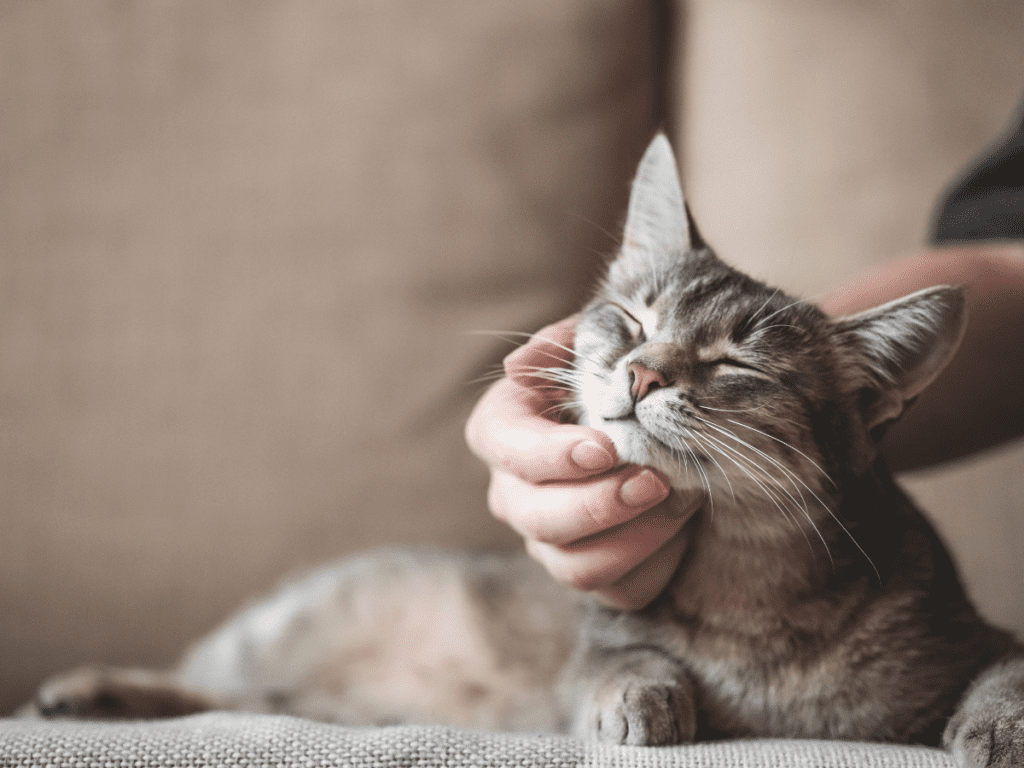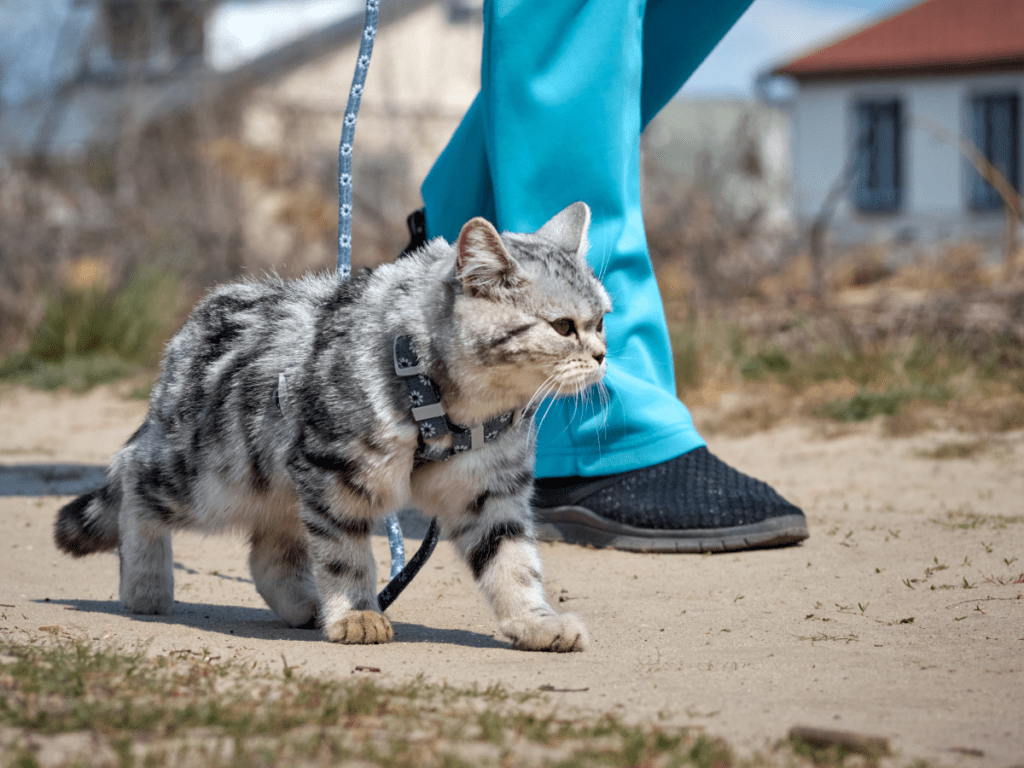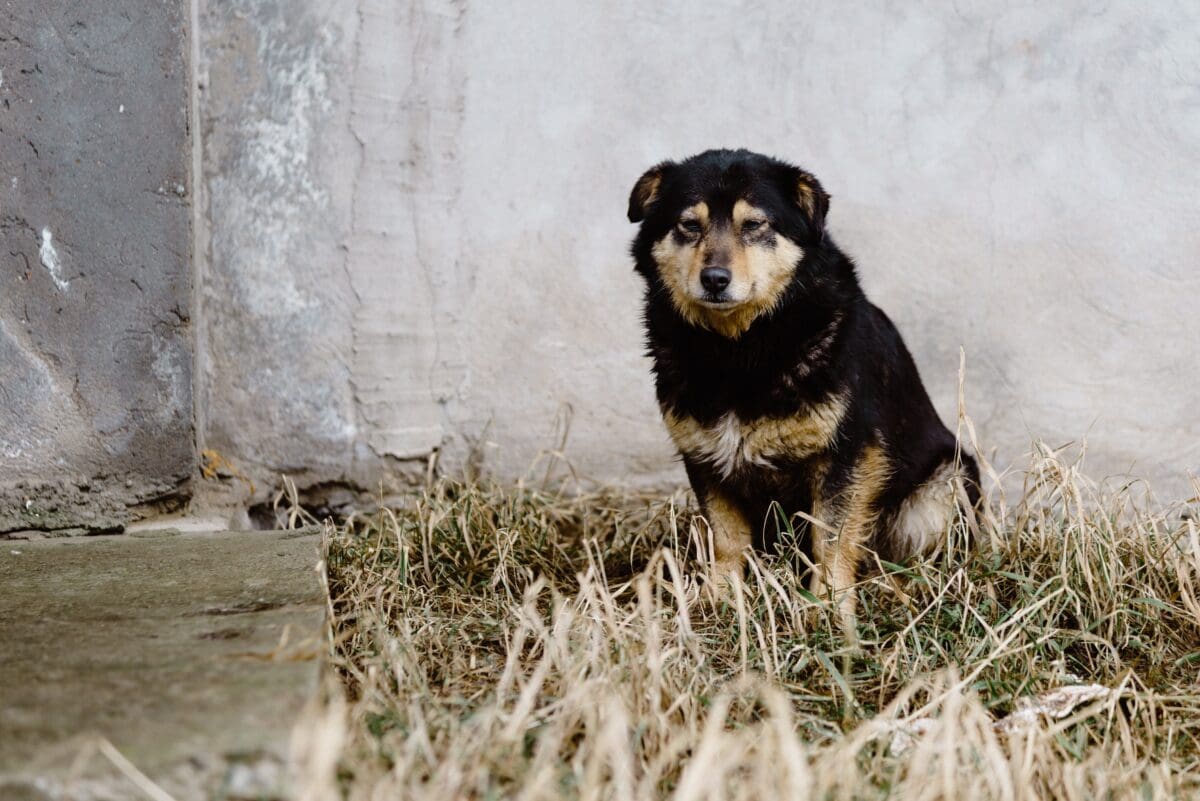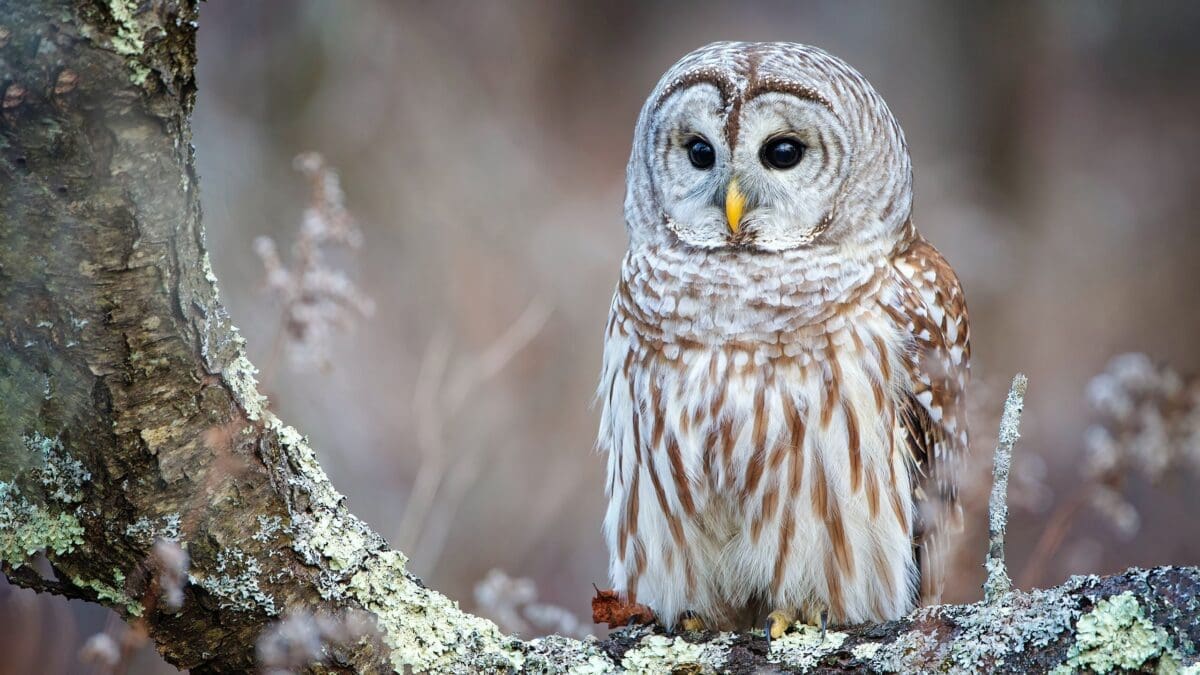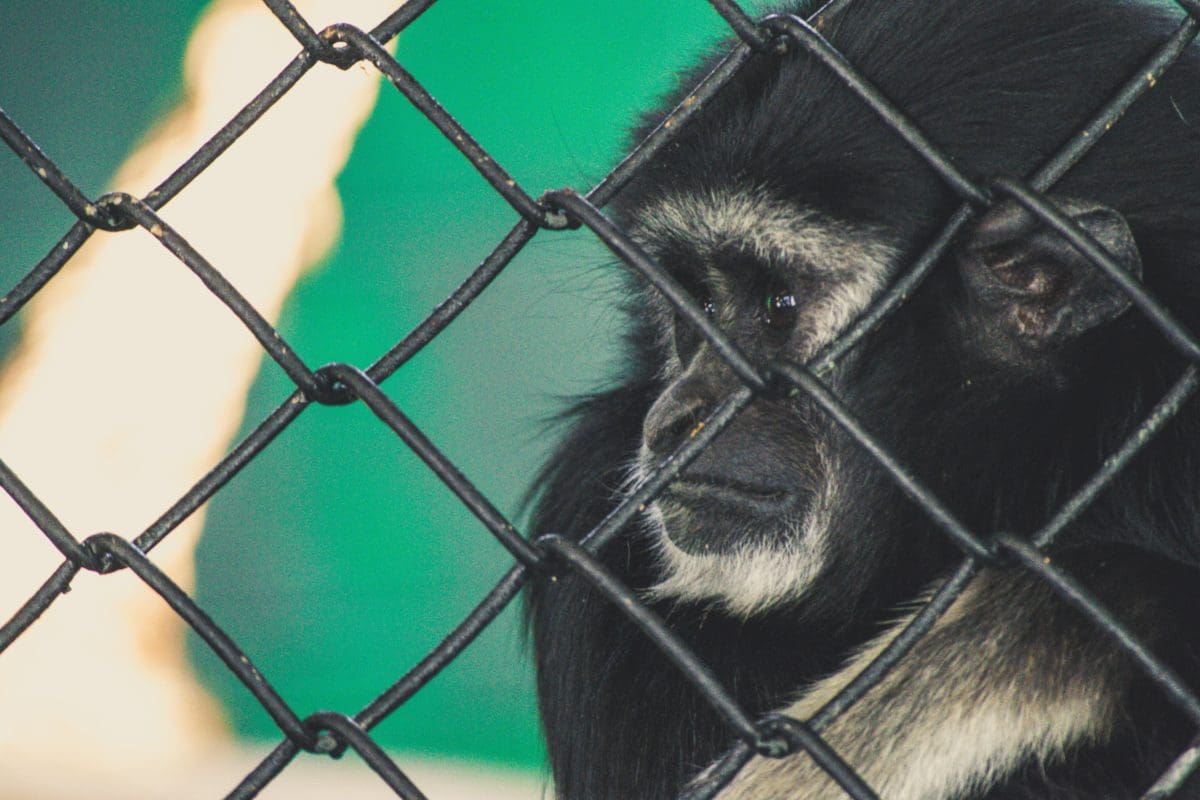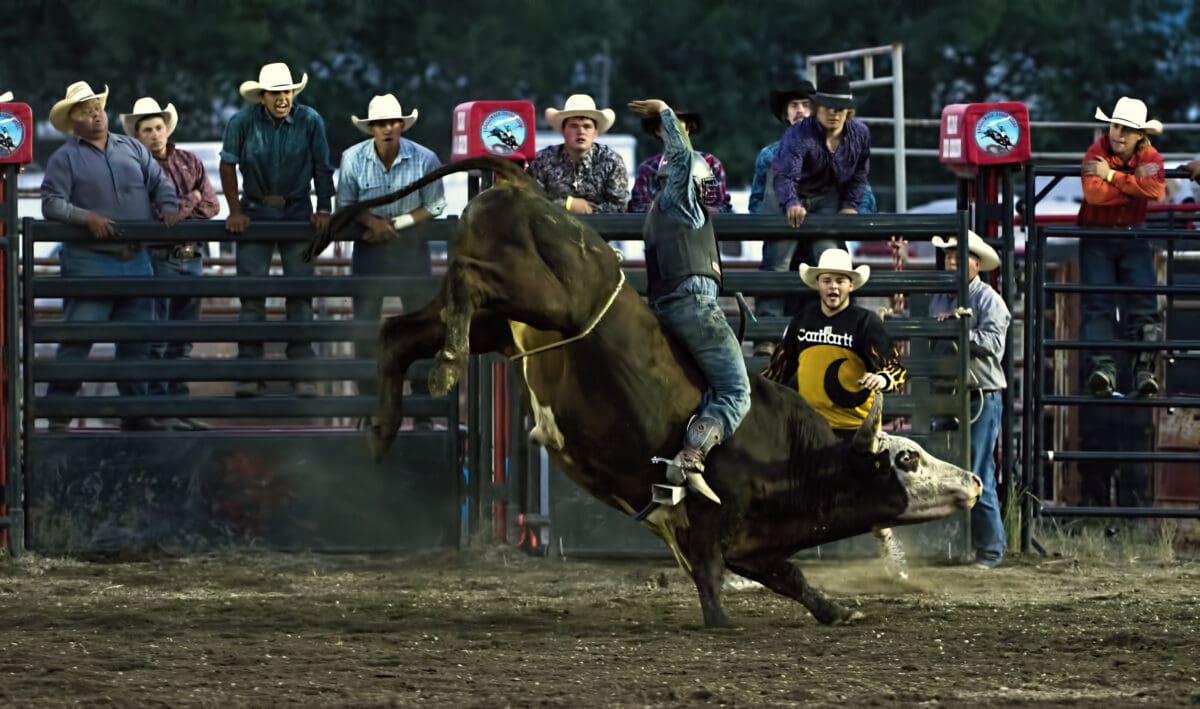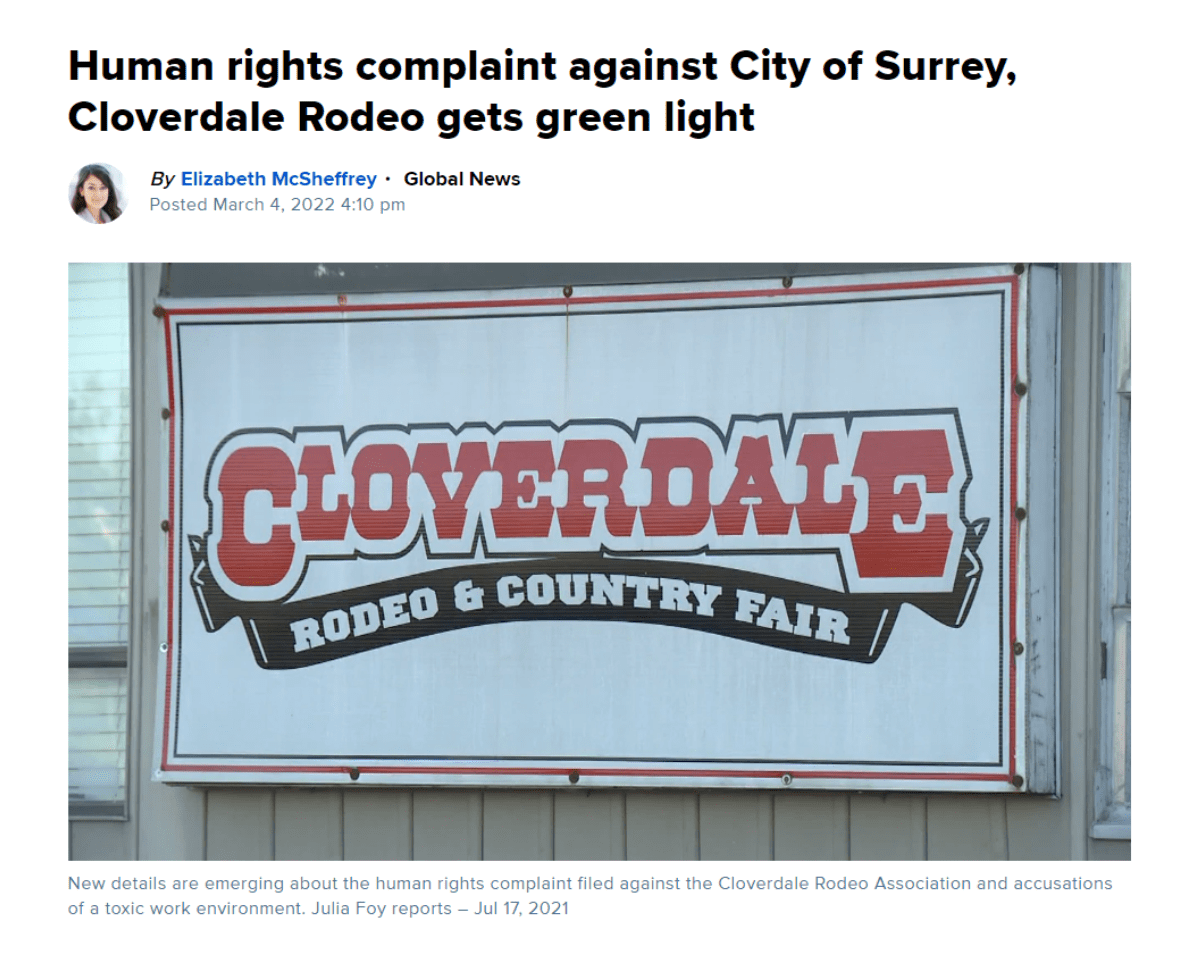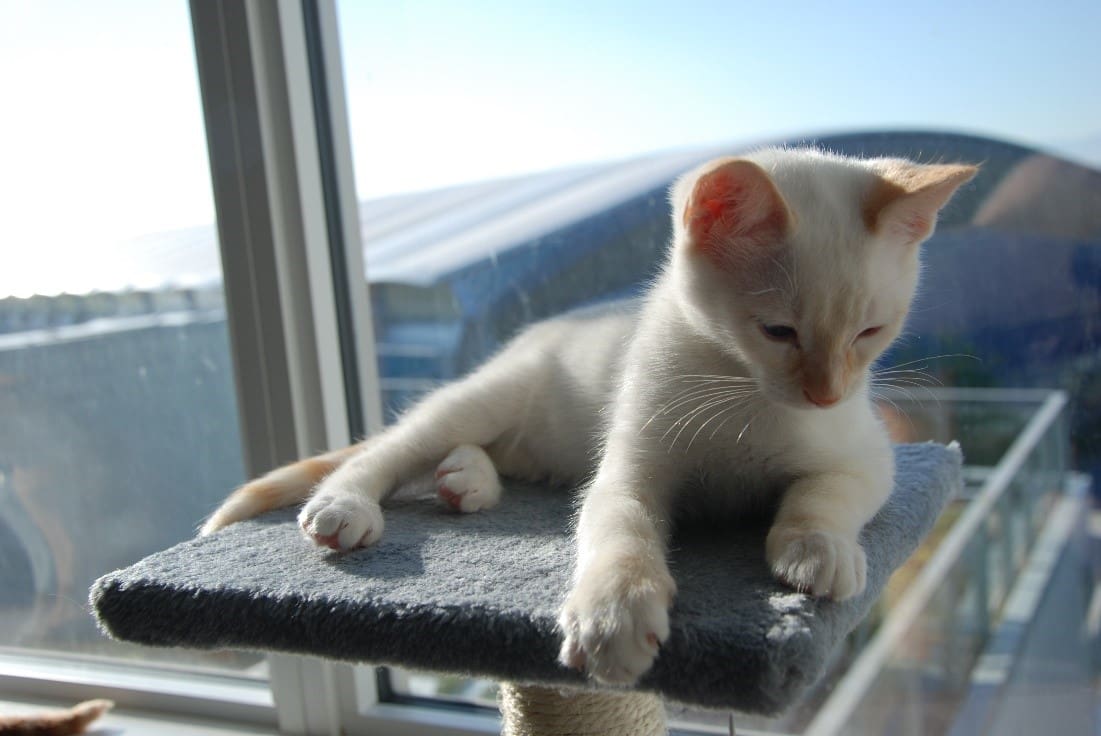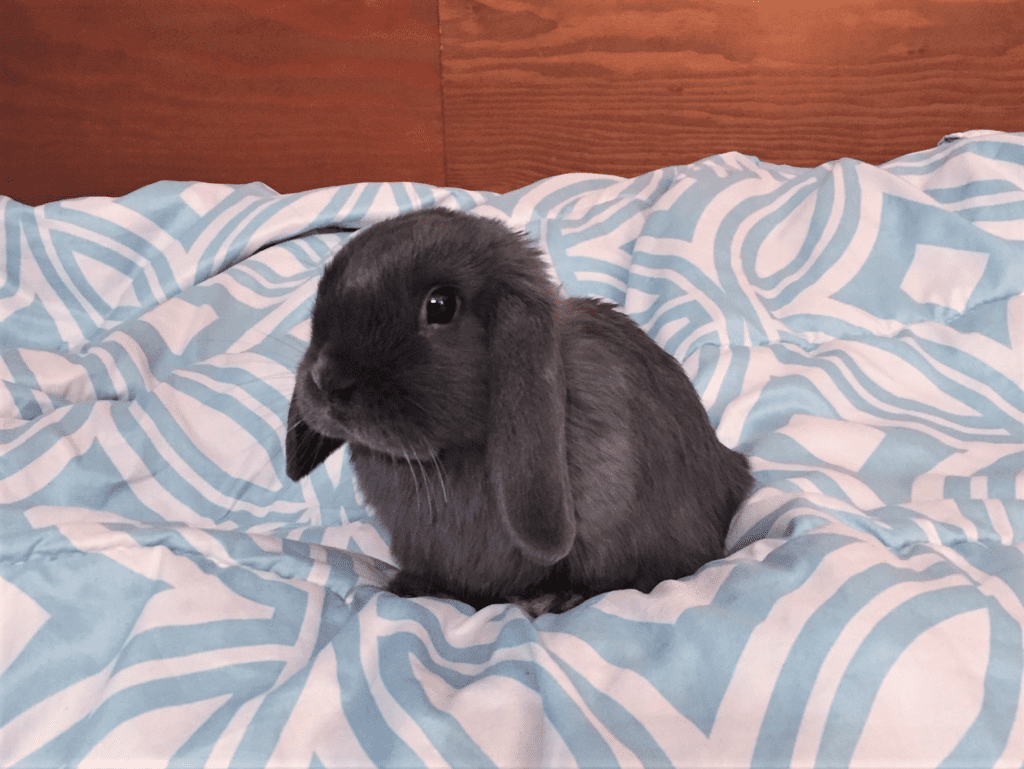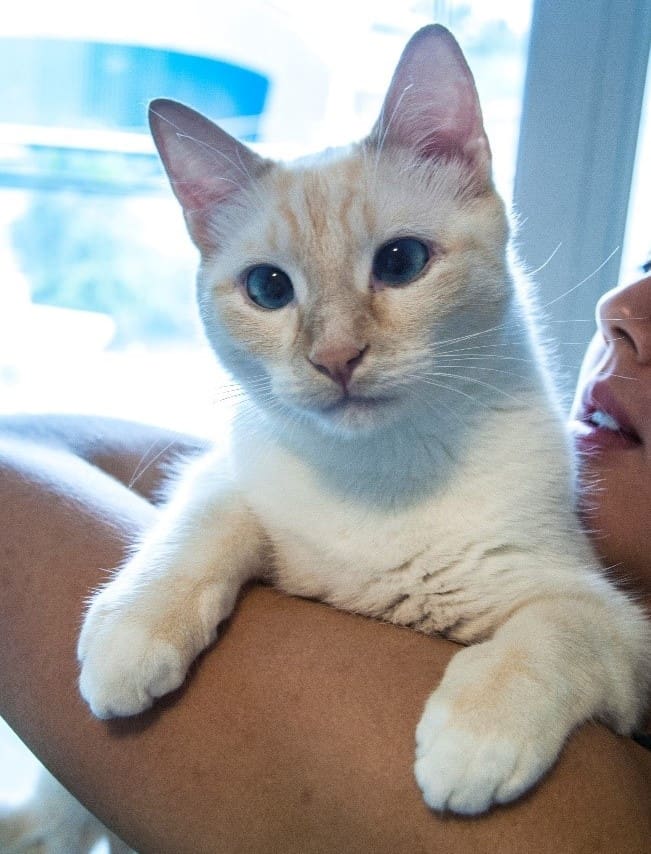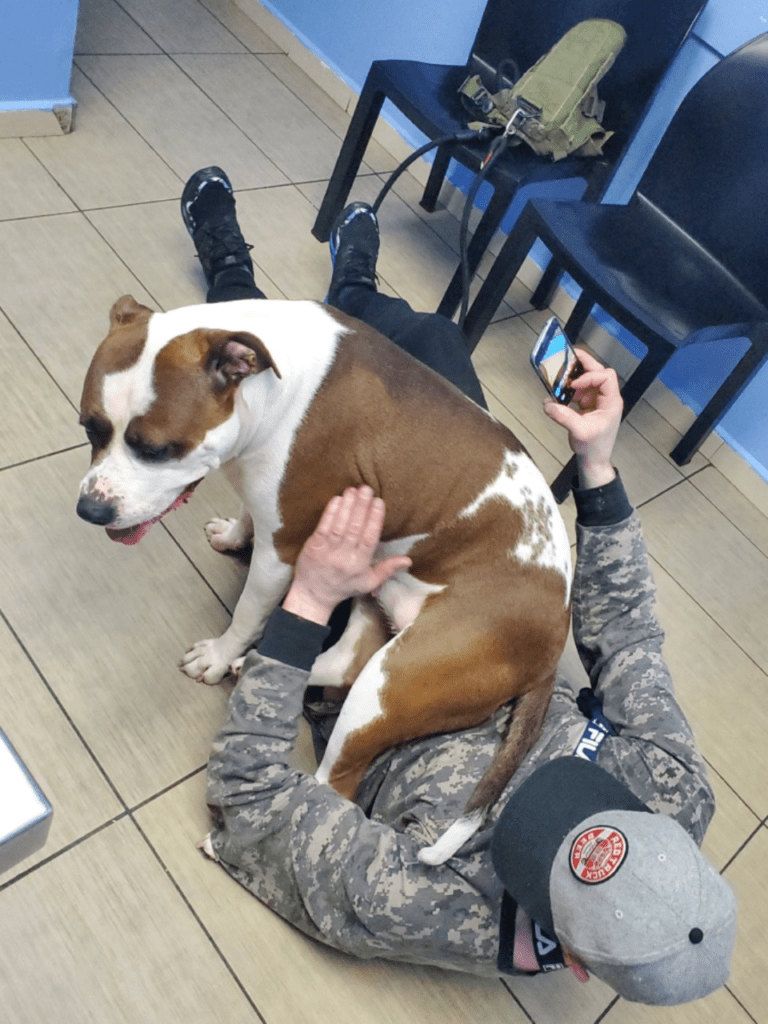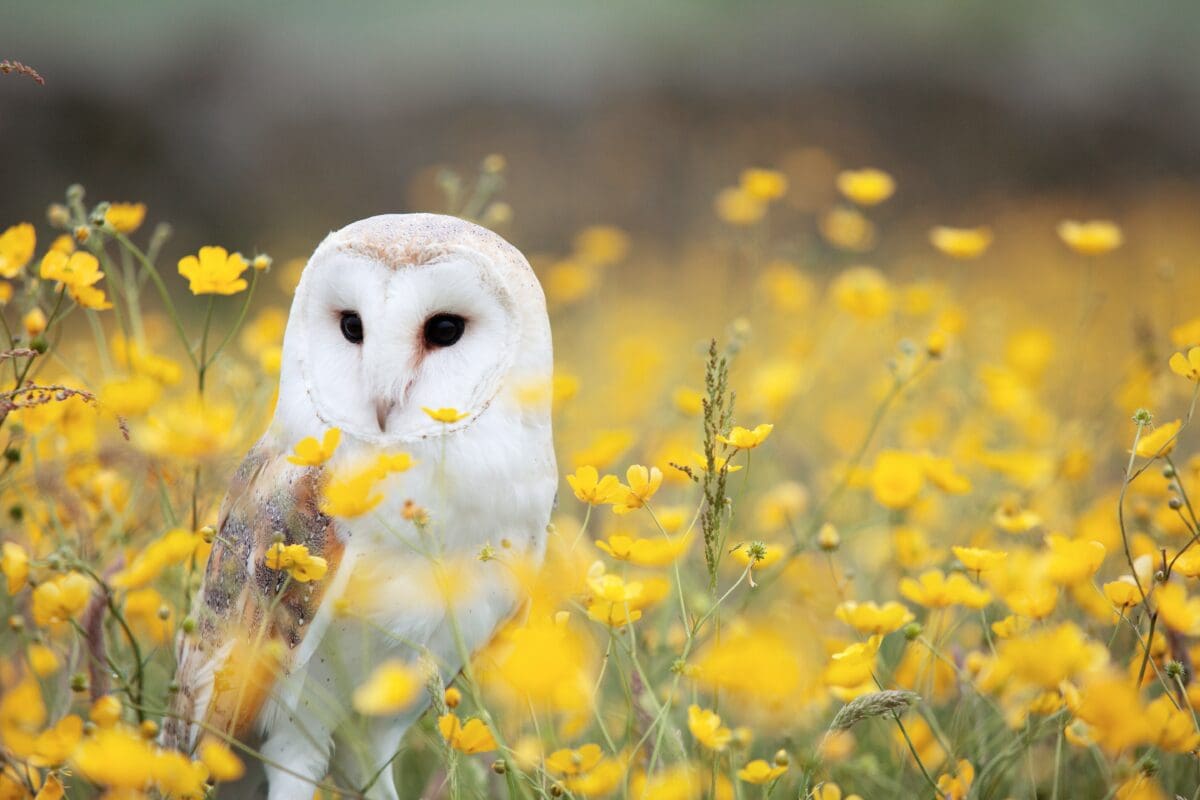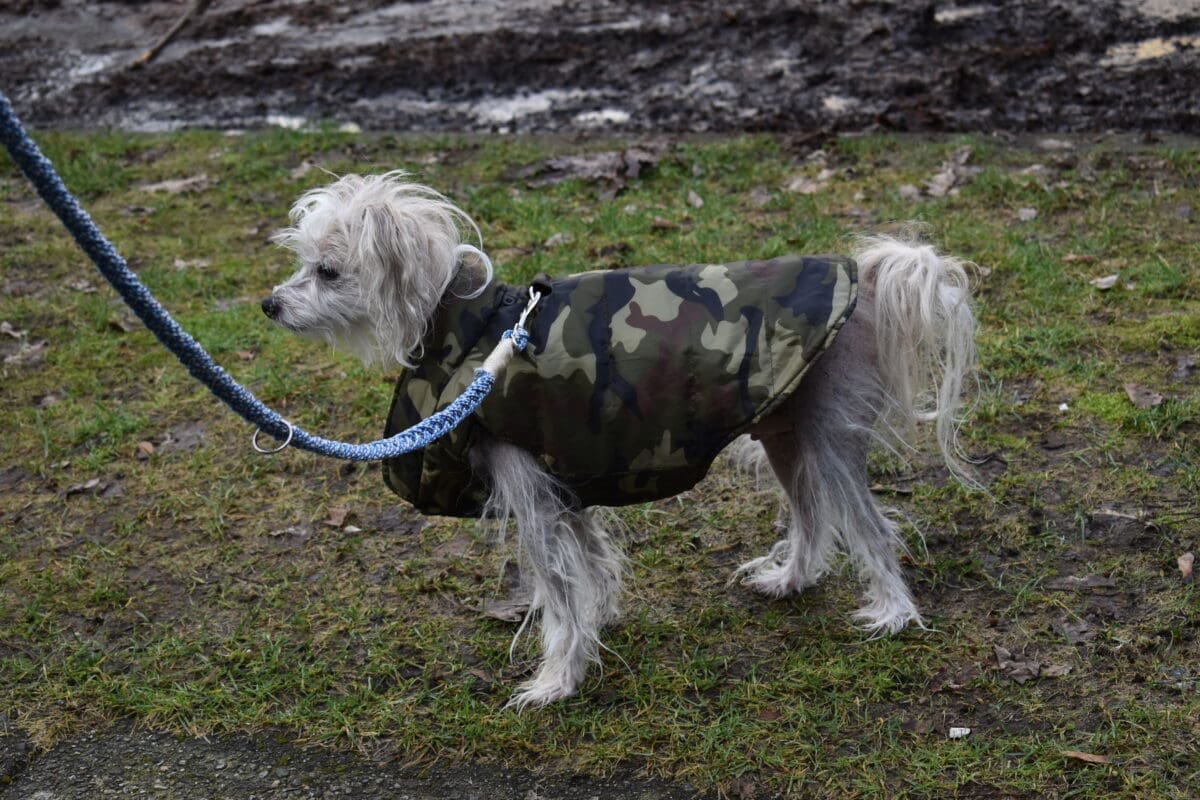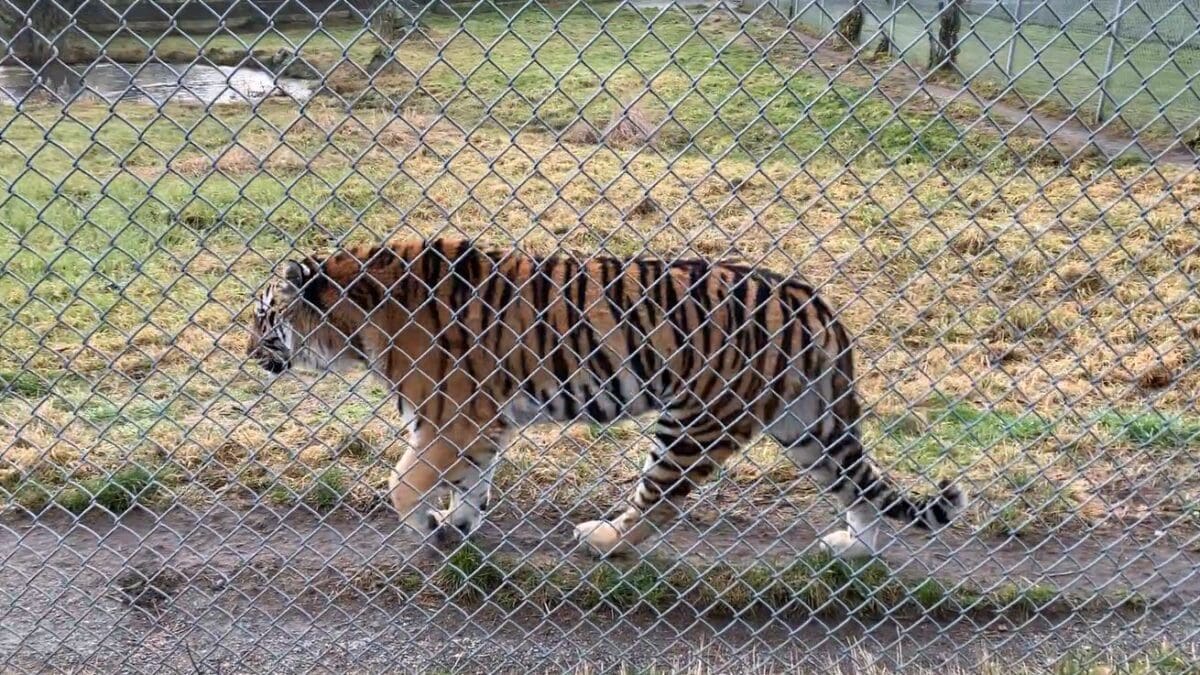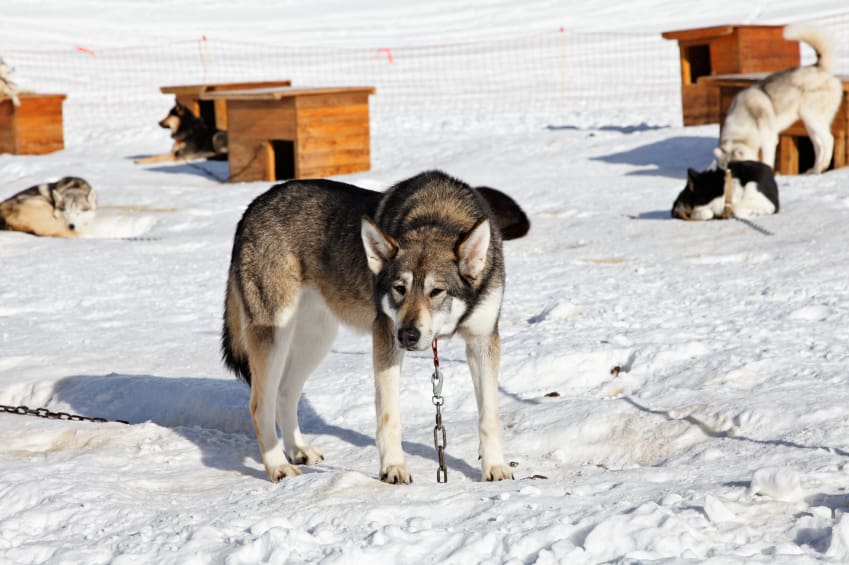VHS and residents from across B.C. and Canada call for better protections for wild and exotic animals
Last month, VHS launched a campaign seeking changes to B.C.’s rules around wild and exotic animal captivity. To date, the petition demanding immediate action to protect animals from suffering in zoos and aquariums has received more than 4,700 signatures.
VHS has now shared that petition with provincial decision-makers, along with a request for a meeting and an open letter outlining our recommendations for updating B.C.’s outdated regulations around wild and exotic animal captivity.
The open letter calls on the B.C. government to:
- Incorporate animal welfare criteria into considerations around species suitability for captivity
- Prevent bringing in new exotic animals into permanent captivity and prohibit captive breeding of existing captive exotic animals
- Close loopholes in current provincial regulations that leave out many species
- Acknowledge and act on growing body of science that indicates wild and exotic animals suffer psychologically in captivity
You can read the full letter below as a PDF, or scroll down to add your name to the growing call for change and view the open letter on this page. We will keep ministry decision-makers updated on the total number of public signatures in support of the campaign, and will keep you updated on the campaign’s progress.
Discussion & recommendations for updating B.C.’s wild and exotic animal regulations
Summary of recommendations
- Expand the Controlled Alien Species regulation criteria to include animal welfare considerations and update the CAS list to include and prohibit the keeping, breeding and transporting of all exotic species for permanent captivity. If no suitable alternatives exist, allow exotic species currently kept in captivity to remain;
- Adopt a positive list approach, which allows only those species that meet certain evidence-based suitability criteria to be kept, bred and transported;
- No longer allow permits to be issued for the keeping, breeding and transporting of exotic animal species, including for zoos and aquariums, film and tv industry, and research and education institutions;
- Relocate to more appropriate facilities, animals whose physical, psychological and/or social needs are not being adequately met in captivity and/or those who are not appropriate for B.C.’s climate.
- Prohibit captive breeding of exotic species.
- Restrict captive breeding of native wildlife, unless it is part of a reintroduction program into the wild.
- Maintain records for all individual wild and exotic captive animals in facilities, including information related to origin, import/export, breeding, births, deaths, and transport history.
- Require emergency management plans for all wild and/or exotic animals in captivity.
Introduction
The Vancouver Humane Society (VHS) is a registered charity dedicated to the humane treatment of animals. The VHS has identified that the keeping, breeding and transport of wild and exotic animals (wild animals not native to B.C.) for the purposes of permanent captivity is not in the public interest.
Background
Psychological impact of captivity
Society’s understanding of how wild and exotic animals can suffer in captivity has expanded greatly over the years. Consider that around the time Canada’s first SPCA was founded in 1869, much of the focus was on the treatment of work horses, used routinely as transportation in cities at the time. Efforts were focused on preventing physical mistreatment of animals, but much less was known then about the psychological suffering of animals. Nearly 150 years later, in 2017, the Vancouver Park Board prohibited new cetacean (whales, dolphins and porpoises) captivity and performances in city parks, citing that the display of these intelligent and social mammals was no longer ethical. This decision, along with ground-breaking federal legislation in 2019 that similarly banned cetacean captivity, acknowledged the scientific evidence that reflects how confinement in captivity causes not only physical, but also psychological suffering.
Today, a vast body of scientific literature outlines that good welfare is about more than just an animal’s basic health and functioning, such as freedom from pain, injury or disease. Good welfare goes beyond this to consider an animal’s ability to live naturally, including engaging in important instinctual behaviours, as well as an animal’s emotional state and their ability to engage in positive experiences, such as play and social contact.
Wild and exotic animals, whether wild-caught or captive-bred, retain their complex social, physiological and behavioural needs that they would have in the wild. Attempting to replicate their natural environment in a captive setting is incredibly challenging and failure to meet their needs can significantly compromise their welfare.
Scientific research, including studies published since B.C. implemented the Controlled Alien Species regulation in 2009, outlines how wild and exotic animals suffer in captivity when deprived of the ability to live naturally and experience positive affective states. Captive conditions are known to elicit abnormal behaviour across a range of different species, due to an animal’s inability to cope with stressors, behavioural frustration or psychopathology.
Stressors in captivity can include exposure to aversive sounds and smells; uncomfortable temperatures or substrates; artificial lighting; restricted movement; inability to escape from public view and from other animals; artificial social groupings; and inability to engage in instinctive behaviours. Captive animals are often kept in climates and exposed to temperatures that their species is not adapted to, which can cause distress and impact their behaviour. Studies suggest that thermal ranges are complex and can differ based on the species, developmental age, weight and number of animals being housed. This makes temperature control especially challenging for captive facilities.
Chronic stress in captive animals can lead to health problems including weight loss, immune system changes, disease susceptibility, reproductive suppression, premature death and high infant mortality rates. For example, studies indicate that giraffes have shorter lifespans in captivity than in the wild. Cheetahs in Western captive facilities have been found to experience reproductive issues, including high infant mortality rates. They also exhibit elevated cortisol levels and are more susceptible than their wild counterparts to bacteria that causes severe gastritis. Captive penguin species are also more likely than wild penguins to experience Aspergillosis, a stress-related fungal infection.
Responses to chronic stress can also present as stereotypical behaviour, which is repetitive, purposeless and an indicator of poor psychological well-being and poor general welfare. This can include stereotypic ritualistic behaviour like pacing or head-tossing; self-directed behaviours, like feather-plucking or over-grooming; or externally directed behaviors, like aggression toward other animals. Stereotypy is a major issue for zoos and aquariums. In fact, approximately 75% of the captive giraffe population in North America exhibits oral stereotypic behaviours, including wall licking. Stereotypy is also estimated to occur in the vast majority, approximately 82%, of captive carnivores.
These behaviours, which are common in captivity but almost never take place in the wild, are often referred to as zoochosis. This chronic inability to cope with stressors and/or behavioural frustration can also lead to significant cognitive issues in captive animals. Research explains that “…these states may result in physiological stress and the release of cortisol into the circulatory system…Specifically, circulating cortisol may act upon the hippocampus in the brain, resulting in temporary amnesia and inhibition of learning or response to new experiences (e.g., enrichment or behavioral modification)…In addition, chronic exposure of the hippocampus to circulating cortisol may accelerate hippocampal degeneration, a normal ageing change associated with senile cognitive dysfunction or dementia-like syndromes which have been described in apes, canids and felids.” In the wild, the stress-response allows an animal to make decisions and escape dangerous situations, but in captivity there is little to no ability for an animal to make such choices when stressed. This chronic stress can lead to “learned helplessness”, a psychological condition whereby individuals learn that they have no control over their environment. This can result in negative behavioural and physiological consequences, including impacting brain health by compromising the functioning of the hippocampus, amygdala, neurons and serotonin, which regulate memory, emotions, movement, behaviour, and mood.
Addressing the psychological suffering of captive wild and exotic animals is incredibly challenging, particularly when we consider that for some species the evidence of suffering can be very subtle or undetectable by humans (e.g. outside of our audible range). In addition to this, new research suggests that abnormal behaviour repertoires and the behavioural expression of stress can also vary between individuals of the same species, adding further complexity to the issue.
Government responsibility
Public sentiment around wild and exotic animal captivity has also been shifting in recent years, with growing concern about the welfare of animals in captive environments. This is reflected in research that indicates good welfare in zoos and aquariums is valued by the general public. The same research found a high rate of willingness among zoo visitors to pay for animal welfare improvements. Another study found “dissatisfaction of zoo staff with executive management and government officials’ knowledge and leadership in promoting good animal welfare.” The study suggests that leadership in prioritizing animal welfare is also needed at the level of government ministries responsible for overseeing captive facilities. These studies highlight the government’s responsibility to address animal well-being, as instances of abnormal behaviour have been minimized by facilities holding captive animals. For example, when asked why a Steller sea lion at the Vancouver Aquarium was repetitively sucking on the substrate of their enclosure, an aquarium representative explained it as a “comforting behaviour the animals like to do after eating”, comparing it to a baby sucking their thumb.
Locally, recent public polling data reveals that 89% of British Columbians oppose the international trade of exotic, wild animals to be kept on display in permanent captivity in zoos and aquariums. This reinforces that protecting the welfare of captive animals is indeed in the public interest and there is an expectation that the provincial government, as the regulator of wild and exotic animals in captivity in B.C., has a responsibility to prioritize this. The protection of animal welfare is a widely shared value in our society, as evidenced by its inclusion in our laws, but it’s not being consistently applied. Given the obligation under our existing laws to not knowingly harm animals; the leadership of other levels of government to respond to changing public sentiment and animal welfare considerations; and the scientific evidence outlining the harm that non-domesticated animals face as a direct result of captivity, it follows that the provincial government has the moral responsibility to better protect wild and exotic animals in captivity.
Zoonosis concerns
The Covid-19 pandemic also put a spotlight on the wildlife trade and its connection to infectious disease risk. In fact, research indicates that 75% of emerging infectious diseases are zoonotic (transmitted from non-human animals to humans). The international trade of animals, including for captive facilities, increases the risk of disease spread. Factors that increase the risk of disease spread include more animal species; higher risk species; more animal numbers; more human contact; greater geographic ranges; movement from less encountered areas; species we know less about; mixing of species (in transit, upon arrival); less structure/scrutiny. These factors directly relate to captive facilities like the Greater Vancouver Zoo and Vancouver Aquarium, where large numbers of animals, from a variety of species and geographic ranges that would otherwise not occur in such proximity to each other are kept.
Covid-19 cases or evidence of exposure has been confirmed in a number of captive species, including tigers, lions, puma, snow leopards, Canada lynx, jaguars, Asian small-clawed otters, gorillas, mink, white-tailed deer, ferrets, binturongs, fishing cats, coatimundi, spotted hyenas, and hippopotamus.
Local context
The VHS has monitored the issue of wild and exotic animal captivity in B.C. for many years, dating back to 1997, with the first report about the Greater Vancouver Zoo published by VHS and Zoocheck. Subsequent reports were published in 2003, 2008, and most recently in 2019. Common recurring issues throughout the reports include observed abnormal behaviour by animals; inappropriate housing of social species; enclosure conditions; water-logging and dampness of outdoor exhibits; lack of enrichment; and breeding practices. Recurring recommendations have included ending the keeping of exotic species; providing more enclosure space and complexity; improved enrichment; housing according to social needs; and ending captive breeding.
The VHS has also advocated over the years for changes at the Vancouver Aquarium, including supporting a move away from cetacean (whale, dolphin and porpoise) captivity. Through a report, “A Crumbling Case for Cetacean Captivity”, claims that cetacean captivity resulted in substantive conservation research and education benefits was critically assessed. The report concluded that the output of captive cetacean research papers was relatively low and a citation analysis largely suggested that impacts were not substantive. The educational benefit of captive cetaceans was also not substantiated. The report went on to note that stated goals of conservation and education made by zoos, marine parks and aquariums can be achieved, and in many instances are being achieved, in other ways that do not require the keeping of live cetaceans in captivity. It’s also worth noting that in terms of research on captive animals, they can respond quite differently to a range of experiments than a wild, free-living counterpart would. This reinforces the importance of prioritizing field research and the conservation benefits of studying species in the wild.
The VHS has encouraged both facilities to transition toward a sanctuary model, focused on rescue, rehabilitation and release programs for injured and orphaned native wildlife and to assist and support conservation efforts of native, wild populations.
Provincial definitions and regulation of wild and exotic species
The keeping, breeding and transport of wild and exotic animals is governed under British Columbia’s Wildlife Act and its regulations.
Under the Wildlife Act, the definition of “wildlife” includes raptors, threatened species, endangered species, game and other species of vertebrates prescribed by regulation, and for the purposes of a number of specific sections, also includes fish. The definition of “game” includes big game, small game, game birds and fur bearing animals, and other species prescribed as game. The Designation and Exemption Regulation lists several schedules of species, noting that Schedule A are prescribed as wildlife for the purposes of the definition of “wildlife” in section 1 of the Wildlife Act. Schedule B lists animals that may be captured or killed only for the specific purpose of protecting property unless an open season is designated by regulation. Schedule C lists animals that can be captured or killed anywhere and at any time in B.C. A hunting licence is not needed to hunt or kill Schedule C animals, unless a person is hunting the following species on their property or they are damaging the person’s property: crows, black-billed magpie, and brown-headed cowbird. Schedule D lists threatened species, with sea otters as the only species currently listed. Schedule E lists endangered species, including the Vancouver Island marmot, burrowing owl and American white pelican. Under the Wildlife Act Permit Regulation, a permit can be issued to possess and transport live wildlife.
Under this framework, the definition of “wildlife” excludes exotic animals, a number of species of which are designated as “controlled alien species” under a separate regulation by the Wildlife Act. Section 6.4 of the Wildlife Act states that the minister can designate a non-native species that poses a risk to the health or safety of any person or poses a risk to property, wildlife or wildlife habitat as a controlled alien species. The minister may by regulation prohibit and impose requirements in relation to the possession, breeding, release, selling and transporting of a controlled alien species. B.C.’s Controlled Alien Species Regulation currently designates more than 1,000 exotic species as controlled alien species, prohibiting that they be kept, bred or transported without a CAS permit. Permits are allowed for accredited or equivalent zoos and aquariums; certified research and educational institutions; film and tv production companies; rescue facilities; and prohibited animals passing through the province in transit. Private individuals still have sunset permits and if they want to transfer ownership to another person, can apply for permit.
Bill S-241
Recently proposed federal legislation, Bill S-241 (Jane Goodall Act), aims to improve protections for captive animals across Canada. The bill prohibits owning, breeding, importing/exporting and interprovincial transport, and possessing reproductive materials for a wide range of species, including big cats, bears, wolves, seals, sea lions, walruses, certain monkeys, and dangerous reptiles, such as crocodiles and giant pythons. It provides exceptions for existing individual animals currently in captivity; for those in need of rehabilitation; for the purpose of conducting non-harmful scientific research or in the best interest of the animal, with regard to individual welfare and conservation of the species.
Bill S-241 also prohibits the captivity of the listed species for entertainment purposes; phases out captivity of elephants; and restricts captivity of great apes to specific organizations for the purpose of conservation and research only. It also identifies seven organizations that have been deemed in the bill to be eligible animal care organizations, including the Vancouver Aquarium but no other facilities in B.C.
It outlines a number of factors to be considered when adding or removing a species from the list of designated animals subject to the prohibitions and references consultation with representatives of groups whose objective includes the promotion of animal welfare. Considerations listed include whether the biological and ecological needs of individual animals to live a good life can be met in captivity, specifically their ability to engage in natural behaviour; their intelligence, emotions, social requirements, physical size, lifestyle and potential use in performances of species; the public safety risk they pose; and the evidence of harm to animals of the species in captivity, including stereotypies, health problems in captivity, shorter lifespans and increased infant mortality rates.
The bill allows the Minister to issue permits authorizing eligible animal care organizations to keep designated animals; conduct non-harmful scientific research; breed; import; transport between eligible animal care organizations; transport/export for relocation to natural habitat; export to an animal care organization outside of Canada that is a member of the Association of Zoos and Aquariums or the Global Federation of Animal Sanctuaries or that would be considered an eligible animal care organization if located in Canada. The bill requires organizations to apply for designation as an eligible animal care organization. Organizations are expected to administer the highest professionally recognized standards and best practices of animal care; have procedures that protect whistleblowers; refrain from activities that misrepresent or degrade captive animals, including through performance for entertainment purposes; and acquire animals in a manner that doesn’t threaten species populations. The Minister may prescribe standards and best practices of animal care, if professionals in animal science, veterinary medicine and animal care, and groups whose objective includes promotion of animal welfare have been consulted and if the standards account for the best available science and information.
Issues
Gaps in provincial regulations
B.C.’s existing regulations related to the keeping, breeding, display and transport of exotic species are not comprehensive, leaving out many exotic species that are not subject to permits under regulations, because they are not considered “wildlife” as per the Act’s definition, or are not on the CAS list. For example, exotic species including, but not limited to, zebras, kangaroos, serval cats, ball pythons, and wallabies can still legally be kept by anyone in B.C. where there are no municipal restrictions.
The CAS regulation currently prohibits only species that pose the greatest threat to public health and safety and does not consider animal welfare or a species’ suitability for captivity. The CAS regulation has not been significantly updated since it was created in 2009. Meanwhile, a growing body of evidence, as outlined in this document, pointing to how exotic animals suffer in captivity, along with shifting public sentiment, reflects the need for B.C.’s regulations to be updated.
Controlled alien species permits and reliance on Canada’s Accredited Zoos & Aquariums accreditation
Currently, the B.C. government issues permits to zoos and aquariums for possessing, breeding and transporting prohibited controlled alien species, requiring that they be either accredited by Canada’s Accredited Zoos & Aquariums (CAZA), or able to provide proof to the satisfaction of the director of meeting or exceeding the accreditation standards set by CAZA in order to receive a permit. In reviewing the B.C. government’s permit application, the only supporting documentation required is certification of insurance. Any other information pertaining to species welfare and care, enclosure details, safety standards and collection/breeding plan is available upon request and shared by CAZA on the facility’s behalf.
This heavy reliance on and downloading of responsibility to ensure high standards to a private, industry association is problematic for ensuring oversight and transparency around captive facility operations.
A review of CAZA’s organizational structure, as outlined in the 2021 Accreditation Process Guide, illustrates how the organization is a private zoo and aquarium industry association that represents the interests of its members and that CAZA accreditation is not, on its own, an indicator of best practices and high animal care standards. CAZA’s organizational structure, including the Board of Directors, Accreditation Commission, Visiting Committee, Accreditation Appeal Panel, and Ethics and Compliance Committee, are comprised of CAZA members, with the exception of a veterinarian, permitted to be on the Visiting Committee and Accreditation Commission (as a non-voting member). The criteria for serving as an Accreditation Inspector requires that individuals are CAZA members (veterinarians may be an exception) and that individuals are currently employed at an accredited institution, with no exception noted for veterinarians.
Another overarching concern regarding CAZA is that the accreditation standards are vague, not species-specific, and largely outcome-based, leaving the process in terms of how to achieve them open to interpretation. Instead, prescriptive requirements can help prevent animal welfare issues from occurring in the first place, because they outline a specific process or action to follow, making them more objective and easier to enforce. For example, the Global Federation of Animal Sanctuaries (GFAS) accreditation program includes more taxa-specific, in-depth animal care standards. Standards around space allocations illustrate this difference between outcome-based and prescriptive approaches. CAZA standards around space allocations, which are not taxa-specific, state that “Habitats in which animals are on public display must be of a size which enables the animal to demonstrate natural behaviours and to achieve a full range of body motion and physical movements.” While outcome-based measures can be useful, when used, they must be based on both psychological and physical metrics. Being able to physically move is not enough of a benchmark to establish the well-being of an animal in captivity.
CAZA standards also state that member institutions must develop a clear and transparent process for identifying, communicating, and addressing animal welfare concerns, including from members of the public. It’s required that feedback to the person submitting the observation be timely. Prior to publishing of VHS’s most recent Greater Vancouver Zoo report in 2019, the author of the report made a number of attempts to engage with zoo management but received no response. VHS also shared the report with the zoo’s owner and received no response.
Also of concern is that CAZA facility inspections occur only once every five years, with facilities notified in advance when they will be subject to an inspection. The results of these inspections are also kept confidential, preventing transparency and oversight of the accreditation process.
Ultimately, CAZA accreditation simply indicates that minimum standards have been met that qualify an institution for CAZA membership, rather than any assurance of adequate standards for animal care and welfare.
Recent captive facility incidents and site visits
A series of high-profile incidents that have occurred in recent years at CAZA-accredited facilities in B.C., along with the multiple reports, photos and video evidence collected of concerning behaviours and circumstances, reinforce the issues around relying on CAZA accreditation for CAS permits. A lack of adequate facilities is also evidenced by the history of incidents and concerns outlined in various VHS reports, dating back to 1997, and discussed in the background section of this document. Since VHS’s last report was commissioned, several more high-profile incidents have occurred at the Greater Vancouver Zoo, including an incident in August 2019 in which a toddler was able to access an unauthorized area and was bitten by a black bear, resulting in the child being airlifted to hospital in serious condition. Then in the summer of 2020, photos of an emaciated-looking moose shared by a zoo visitor prompted public concern and resulted in the animal being euthanized the following day. Most recently, a WorkSafeBC report obtained by CBC News discovered that in December 2021 a zoo employee was bitten while feeding one of the zoo’s jaguars through a metal feeding chute.
VHS visits to the Greater Vancouver Zoo in January and the Vancouver Aquarium in February of this year resulted in further documentation of ongoing animal welfare concerns. Photo and video evidence collected during these facility visits and from previous visits in recent years establishes a history of concerning situations and behaviour. This includes abnormal, purposeless, and repetitive behaviour by a number of animals, including a Steller sea lion seen repeatedly sucking on the ground of their enclosure; sea otters repeatedly pulling on the edge of their tank; a lone male lion repetitively pacing the fence that separates him from other captive lions; and giraffes licking and biting the bars of their enclosure. VHS also documented a number of inadequate enclosures, including for the two hippos at the Greater Vancouver Zoo, whose indoor enclosure is small and barren. It also appears there is only one, small indoor pool. Signage on their enclosure indicates they have been kept separated from each other since at least the summer of 2020. The African Penguin enclosure at the Vancouver Aquarium is also small and fails to provide any opportunity for the animals to escape public view. The penguins were observed spending the vast majority of the day during public viewing hours huddled together around a door in their enclosure. This evidence led VHS to submit a report to the BC SPCA and an investigation has since been opened and is underway.
Bill S-241 gaps
While Bill S-241 proposes a number of significant changes to the wild and exotic animal captivity industry across Canada, particularly in areas of the country where current regulations are largely non-existent, there are gaps in the bill which B.C. can address through action at the provincial level. The bill’s exceptions around owning, breeding, importing/exporting and transporting of designated animals for non-harmful scientific research or in the best interest of the animal, with regard to individual welfare and conservation of species leaves room for interpretation. Clarity is needed around what criteria will constitute legitimate non-harmful scientific research, an animal’s best interest and species conservation.
The preamble to Bill S-241 acknowledges the shared federal and provincial jurisdiction around the subject of non-domesticated captive animals. This reality of shared jurisdiction means that, should Bill S-241 pass, the B.C. government would need to update provincial permitting for wild and exotic animals to meet or exceed the regulations outlined in Bill S-241, as the federal regulations would prevail over any weaker provincial regulations in this case. In its second reading in the Senate, the bill’s sponsor, Senator Martin Klyne, stated that the Association of Zoos and Aquariums (AZA) has one of the highest standards of accreditation, with only seven facilities in Canada achieving AZA accreditation. These seven facilities, which includes the Vancouver Aquarium but not the Greater Vancouver Zoo, are listed as the first eligible “animal care organizations” under bill S-241. Senator Klyne acknowledged that other organizations, including CAZA-accredited facilities, would need to improve or evolve in order to be approved as an animal care organization under the bill. This reinforces the need for improvements to B.C.’s regulations around wild and exotic animal captivity.
While Bill S-241 extends protections to more than 800 wild animal species, thousands of other species remain unprotected under the proposed regulations, as well as under existing provincial CAS or Wildlife Act regulations. This includes species such as zebras, kangaroos, serval cats, ball pythons and wallabies.
Recommendations
With B.C.’s Controlled Alien Species regulations currently under review, now is the ideal time for updated regulations that are informed by society’s expanded awareness of the issues facing wild and exotic animals in captivity.
The VHS is recommending a number of actions be taken to address the issues and gaps outlined in this briefing note:
First, the VHS recommends that B.C.’s Controlled Alien Species Regulation be expanded to include criteria related to animal welfare considerations and, ultimately, that the possession, breeding, and transporting of all exotic species for the purpose of permanent captivity be prohibited. Crucially, this prohibition must also apply to circumstances under which the B.C. government currently issues CAS permits, including accredited zoos and aquariums, TV and film industry, and research and education institutions.
Exemptions should be considered for existing exotic animals in B.C. In regards to possession, this includes maintaining the exemption that allows for a Rescue Centre Possession Permit for seized, abandoned or surrendered CAS animals. An exemption should also be included for the possession and transport, for the purposes of rehabilitation, of established, wild, non-native Wildlife Act species, including but not limited to grey squirrels. This exemption is not intended to include invasive species that pose serious impacts on native species and the environment. In addition, abandoned domestic European rabbits should be removed from Schedule C of the Wildlife Act, to allow for rehabilitation and rehoming without the requirement of a permit.
In regards to transport of exotic species, an exemption should be included that allows existing exotic animals in B.C. to be relocated to more appropriate facilities if their physical, psychological and/or social needs are not being adequately met in captivity and/or those species who are particularly inappropriate for B.C.’s climate. Criteria for what constitutes a more appropriate facility should be based on the Global Federation of Sanctuaries accreditation standards or equivalent. A transport exemption should also apply for seized, abandoned or surrendered CAS animals under a Rescue Centre Possession permit. The VHS asks that the B.C. government adopt a positive list approach to the CAS regulation, which is a framework that allows only those species that meet certain evidence-based suitability criteria to be kept, bred and transported. This serves as an alternative to B.C.’s current negative listing approach, which involves restricting or banning problematic species. As outlined in a previous VHS submission regarding positive lists, the advantages include that they are short and easily understood by the public; they use an evidence-based approach, including animal welfare considerations; they are preventative and utilize the precautionary principle; and the onus is on those who wish to trade or keep exotic animals to identify animals suitable as pets.
The VHS also asks that breeding of existing captive exotic species in B.C. be prohibited, effective immediately, so that efforts can be focused on providing the best possible care for those individual animals while ensuring no additional exotic animals are born into permanent captivity in B.C. facilities. Native wildlife must not be bred for the purpose of permanent captivity. As such, breeding of captive native wildlife should be restricted and only permitted as part of a reintroduction program into the wild, with video streaming permitted, but no physical display of the animals to the public allowed.
The VHS’s final recommendation relates to record-keeping and emergency planning for facilities that have captive wild and exotic animals. As part of the B.C. government’s permitting process, the province should require and maintain records for all individual wild and exotic captive animals in B.C. facilities, including information related to every individual animal’s origin, import and export history, breeding history, births, deaths, and transport history. This should also include all animals owned by a facility but on loan. Similarly, emergency management plans for all wild and exotic captive animals must be required. Last year’s catastrophic flooding, heat dome and wildfires and the deaths of more than one million farmed animals as a result reiterates the growing importance of protections for animals under human care during disasters and emergencies. The area impacted in last year’s flooding of the Fraser Valley was not far from the location of the Greater Vancouver Zoo. It’s crucial that emergency planning include a feasible strategy for urgent animal evacuations to prevent the kind of mass suffering we have seen.
While this document is focused on the context of zoos and aquariums, B.C.’s regulations also encompass the use of wild and exotic animals in other industries, such as TV and film, exotic pets, and educational and research institutions. The discussion and considerations outlined in this document should apply to all industries and use of wild and exotic animals that are subject to B.C.’s regulations.
